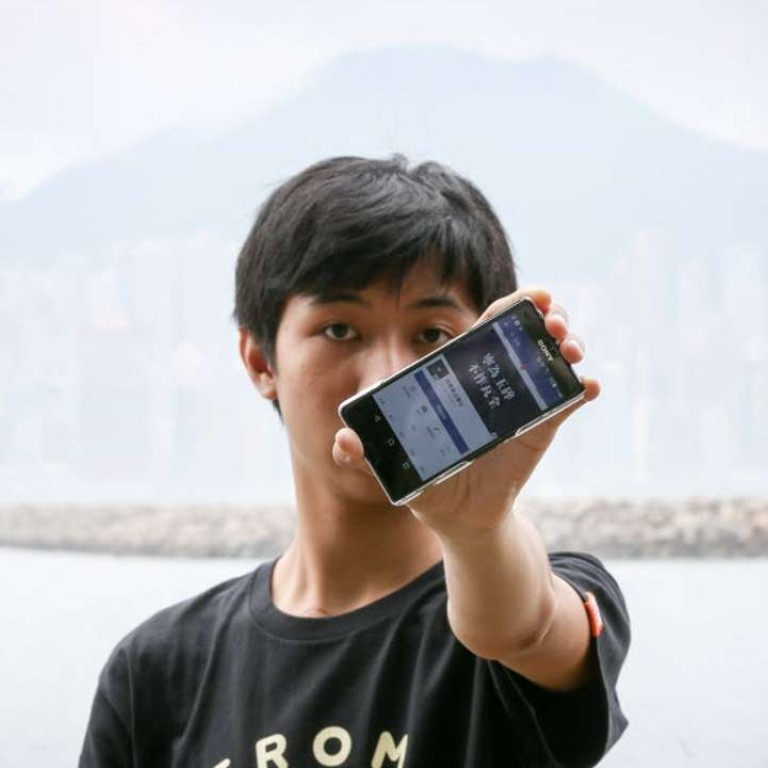
Hong Kong student’s transformation: from support for Chinese athletes in 2008 to independence backer in 2016
Student activist Parco Wong reflects a burgeoning trend of youngsters setting up localist and pro-independence groups in schools
Eight years ago, Parco Wong Lok-hang, then age nine, was proud of his Chinese identity during the Beijing Olympics. Now Wong has not only lost his interest in cheering for the national team, but has co-founded a localism group in his school, Ying Wa College, to promote the idea of Hong Kong’s independence from China.
He expects independence to produce a Hong Kong government that will be “fully democratic and responsive to people’s needs”. He also believes the city can survive on foreign imports and trade – without the backing of China.
“We have enough money to build our own desalination facility and our food can be imported from abroad,”Wong insists, when asked about the city’s heavy dependence on the mainland for basic needs such as drinking water and food.
Wong’s group was set up in his school in Sham Shui Po on August 8, and is one of at least 16 “localist” outfits run by secondary school students. They reflect the expansion of the highly controversial movement for Hong Kong independence from universities and youth activist groups to even younger recruits.
These groups emerged after a 60-member group called “Studentlocalism” mounted a call to action on its Facebook page earlier this month.
Ying Wa College vice-principal Mak Tak-cheung has previously said he will talk to students such as Wong and see if their plans “go against Education Bureau policies”, while a bureau spokesman said “any school organisation which serves to promote independence must be banned”.
But Wong, whose group has only three members so far, said he would proceed with his plans, such as planning forums and distributing pamphlets to discuss independence when he starts as a Form Five student next month.
“If we cannot make a political stance by giving out pamphlets, we will share the materials online,” he says.
Like many young people in the city, Wong studied Chinese history from Form One to Form Three, but it saddens him to learn about political troubles during Mao Zedong’s era.

Wong’s “political awakening” came in September 2014 when he joined fellow students in boycotting classes and gathering outside government headquarters in Admiralty to say “no” to Beijing’s stringent framework for universal suffrage for the chief executive election.
“I was angry when police fired tear gas at protesters on September 28,” he says, referring to a key incident that triggered the 79-day Occupy protests which paralysed parts of the city.
“I realised that under Chinese rule, it was unlikely – or impossible – to have democracy,” he says.
“In the past, the [British] colonial government was more responsive to the people’s housing and economic needs. Now the chief executive ... often does things that seem to incite people’s animosity.”
Earlier this month, electoral officials invalidated the candidacy of six localists for the Legislative Council elections on September 4 because of their pro-independence stance. The student, who only identifies himself as “Tom”, says the disqualifications only reinforced his belief that “without independence, we will never see universal suffrage in Hong Kong”.
“Studentlocalism” has urged supporters to run for positions in student unions in their respective schools as a way to promote independence.
Tom says he is “actively considering” challenging a group of students for union positions because he does not know if they back independence.
City University political scientist James Sung Lap-kung says the “radicalisation” of teenagers stems from their concerns for the future.
“They feel the future is theirs. So naturally they feel obliged to discuss these issues,” he explains, adding that peer pressure also plays a big role.


